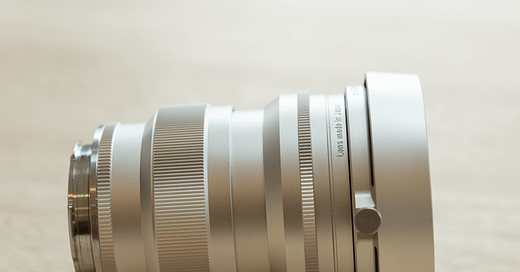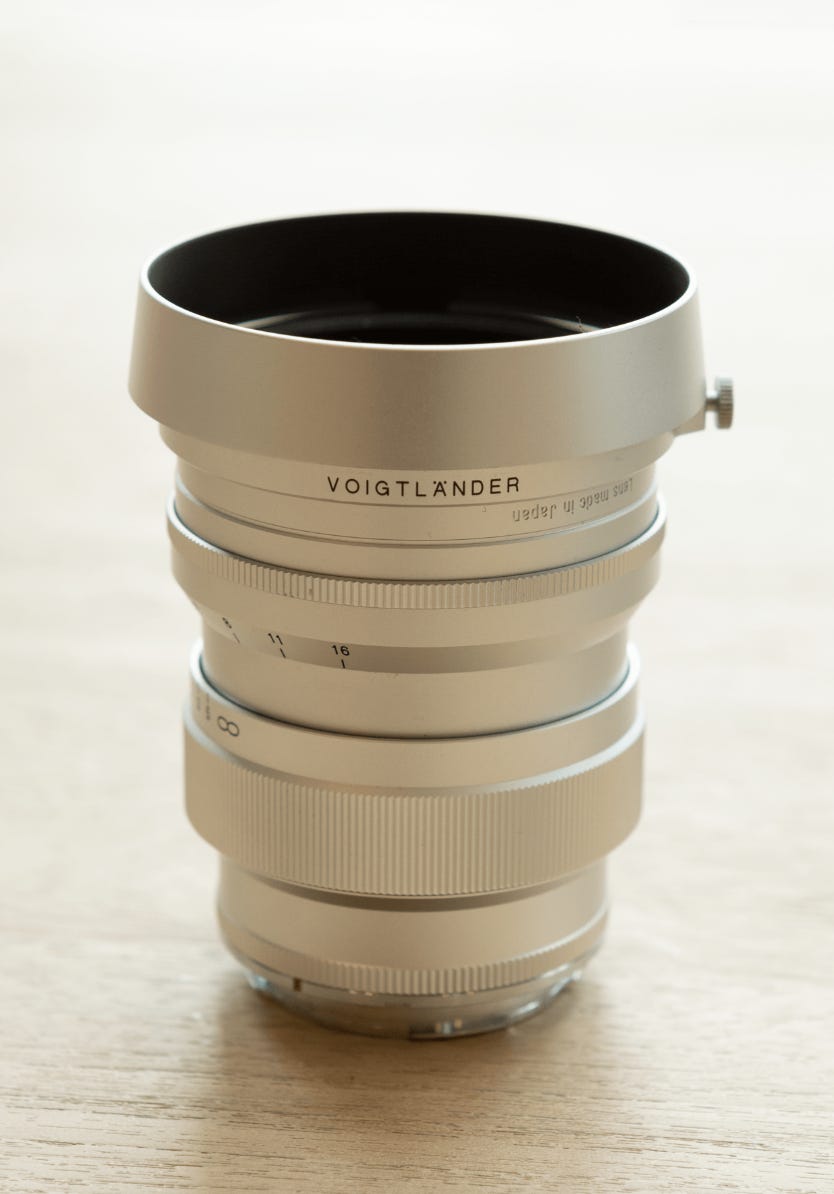The Joy of the Manual Lens in the Age of AI
Technology is grand: It can simplify the complex and ease the tedious. Today one can buy a camera with an automatic shutter, automatic aperture, automatic ISO and, with the press of a finger, automatic focus. In fact, with the advent of AI one can now create pictures without needing a camera at all. One day a camera might even instruct you where to stand and what to shoot.
So why would you ever want to complicate your life? Why not just take advantage of technology?
Yes, we should take advantage of electronic and digital innovations when we find it helpful or necessary, after all we are living in a complicated world. But I am not a masochist, I enjoy digital cameras and the way we can take a ridiculous amount of photographs and download them to a computer to sort and edit later.
Yet there is something alluring about the analog. It gives us a different relationship with the camera. As I thought about this, it made me wonder what exactly “analog” was? According to the Merriam-Webster dictionary, it’s “a device in which information is represented by continuously variable physical qualities.” I added the italics because it illustrates so clearly the lens’ focus ring. With a manual lens we don’t flick a button, we twist our hand to turn the gear.
Using a Manual Lens on a Digital Camera
So, what is a manual lens? It’s a lens where you must adjust a numbered ring to focus the camera and, depending on the camera and lens, manually set the aperture as well. To get the most out of the the experience, it’s best to know how to set your camera’s ISO, shutter speed, and aperture, or at least be willing to learn.
What I like about using a manual lens on a digital camera is that it’s another way to explore the physicality of taking a picture. It brings an intimacy to the act of photographing and it makes me think twice before I shoot.
A good quality manual lens is probably heavier than what you are used to because it has metal components. I actual enjoy the heaviness of the lenses, although I do admit it is harder to carry them around. However, I like that the lenses tend to be more compact because they don’t need all the digitized smartness of an automatic lens — just don’t think this fact will save money, they can be just as pricey as their automatic cousins.
Using a manual lens is not the same as putting your automatic lens into manual mode. An automatic lens is built to minimize the movement necessary so the camera can use its internal motor to focus. The internal computer’s goal is to make focusing quick. When you put your automatic lens on manual, the lens is less forgiving to the human hand, it’s harder to manipulate the ring and confirm focus.
As long as I have time to fiddle with the camera, I sometimes find using the manual lens kind of fun. It makes me feel more invested in the photograph. I recall reading about how baking companies could easily make cake mixes that included eggs, so you only needed to add water to make the dough. But they found that those mixes didn’t sell as well as the ones in which customers had to add their own egg. Perhaps it came closer to the feeling of baking from scratch? Or maybe they were more invested in the cooking process? To me, it feels like that with a manual lens. It’s not necessary, but you feel like you are an important part of the process.
It also makes me choose exactly what I want to be in focus in the photograph. I must hone in on the object, or subject, to make sure the focus is tack sharp. Then I often adjust the framing slightly. It might make me think more about the light, and also gives my fingers something to do: I must turn my hand back and forth to find the sweet spot.
Some people can manipulate the camera’s settings quickly, but I am not so fast. If you shoot mostly with wide angle lenses (like 28mm and wider) it will be easier to use the manual controls because focus is more forgiving. On a bright sunny day, manual lenses may even be much faster than automatic because you can set one focus point and most of the picture will be sharp. With small depths of field, however, the converse is true.
I prefer using the camera’s viewfinder as opposed to the LCD screen. The viewfinder filters out the extraneous noise of the scene. I find it less distracting, and then I can take that feeling a step further when I focus. Just to be clear, using the LCD screen may be essential to focus some manual lenses, which I find annoying but I know others prefer constructing pictures that way.
Focusing with digital cameras is different than some manual cameras of the past. I have memories of my grandmother shooting with her Rolleiflex and adjusting the viewfinder’s two separate images to converge so that picture was sharp. I thought that was really cool, and unfortunately the lenses I use today are not as easily focused as that.
Sometimes I am surprised I like manual lenses at all. I can often be impatient, and appreciate the latest technology and gadgets. Shooting this way has its risks, and I can more easily miss a moment, or make a mistake. Still, there is something about these mechanical lenses that intrigues me.
Some Challenges
You will probably have to buy a new lens, which means spending money. As a reminder, shooting with a manual lens is not the same as using an automatic lens with manual settings.
You will most likely need a lens adapter to fit your camera. All adapters are not the same! Some adapters will literally only fit the lens to the camera, and will not let you change the focal length (if it’s a zoom lens), or the focal plane. Basically, you will be stuck with the same depth of field and sharpness for all your photographs. You do not want that kind of adapter.
You have relatively good eyesight. You can use your regular glasses or contacts if that helps, but sometimes you will need to manually focus with your eyes if there is focus confirmation. Although with most digital cameras you may be able to enlarge the LCD screen, which can help a lot.
Be prepared to set the aperture manually. If the lens doesn’t talk to your camera, you will probably have to set the shutter speed and ISO as well. The adjustments might slow you down.
Who might enjoy using a manual lens?
If you don’t mind the additional weight of the lens (and you like the smaller size).
You enjoy mechanical things (maybe an analog watch?).
You enjoy learning and and exploring new things.
You don’t mind less efficiency.
You may prefer other “old fashioned” hobbies like writing with pens in notebooks.
Your subject matter lends itself to this type of photography. Like landscapes, daytime street photography, etc.
Questions for you:
Does anyone have advice? Reasons they enjoy or hate using manual lenses? A favorite? Is there something else about manual lenses that you would be interested in reading.





